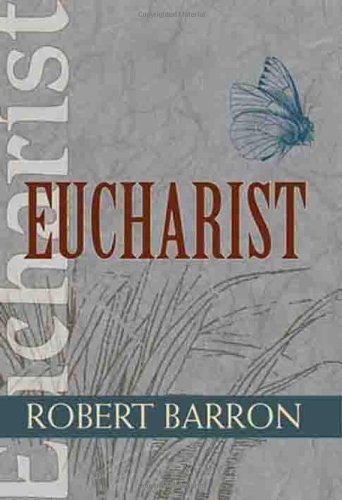Eucharist (Catholic Spirituality for Adults) (Christian Spirituality for Adults)
amazon.com
Eucharist (Catholic Spirituality for Adults) (Christian Spirituality for Adults)

Disciples, mystics, saints, and forgiven sinners are welcome at this breakfast inaugurating the new and elevated manner of being that God had wanted to give us from the time of the Garden of Eden.
It is in this mission to feed a hungry world that we see the real point and purpose of the sacred meal.
We oughtn't to read these Genesis tales, of course, as straightforward history, but rather as densely textured symbolic narratives that express, with admirable economy, the fundamental features and aspects of sin: violence, arrogance, division, blaming, deception, lust for
human race, starving from the time of Adam and Eve for what will satisfy. In imitation of our first parents, we have tried to fill up the emptiness with wealth, pleasure, power, honor, the sheer love of domination, but none of it works, precisely because we have all been wired for God and God is nothing but love.
For Israel, therefore, the Passover meal was to he a continual reminder of the price paid for freedom and communion.
What annoys Yahweh is not sacrifice in itself, but sacrifice that has become divorced from the real work of compassion and justice, from the demands of the covenant. Such sacrifice has devolved into an empty symbol.
Love, in the theological sense, is not a feeling or a sentiment, though it is often accompanied by those psychological states. In its essence love is an act of the will, more precisely, the willing of the good of the other as other.
Having found friendship with God, Isaiah implies, human beings will rediscover friendship with one another, and they will not feel the need to train for war any more.
"The deepest meaning of Christian discipleship is not to work for Jesus but to he withJesus."